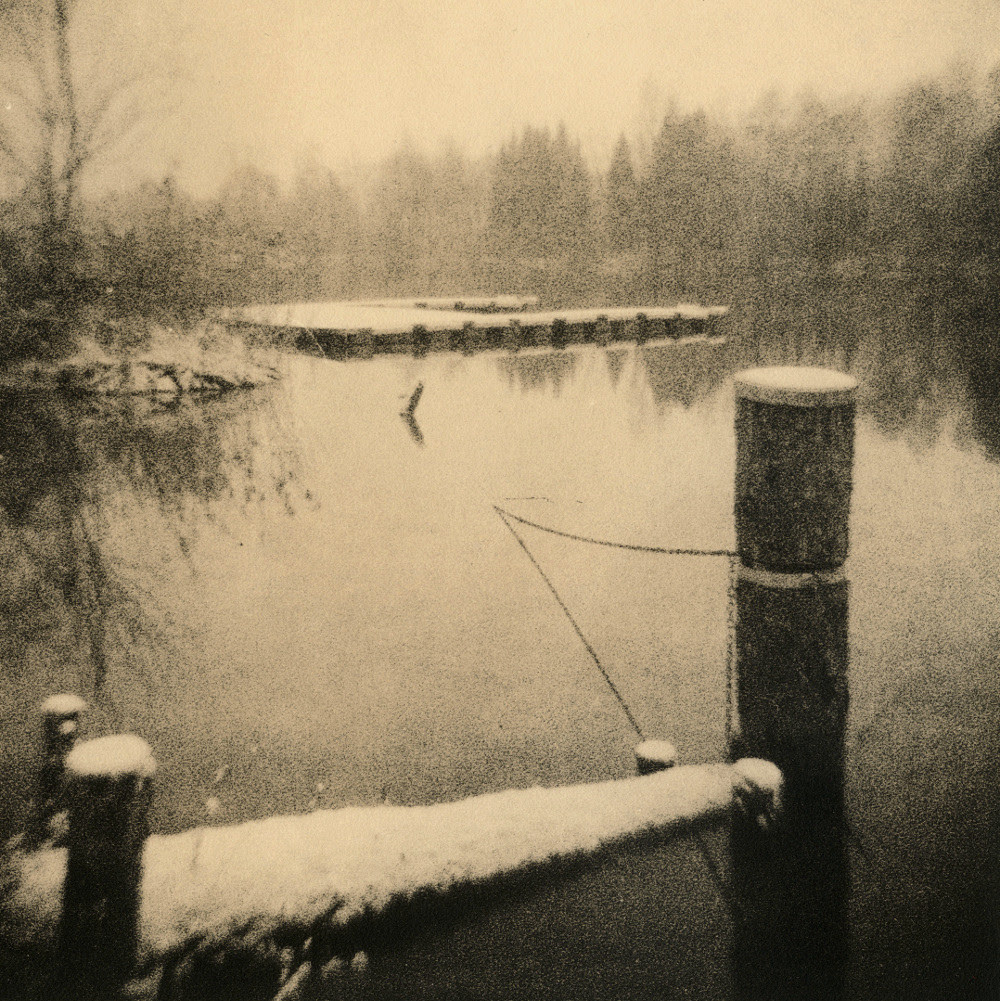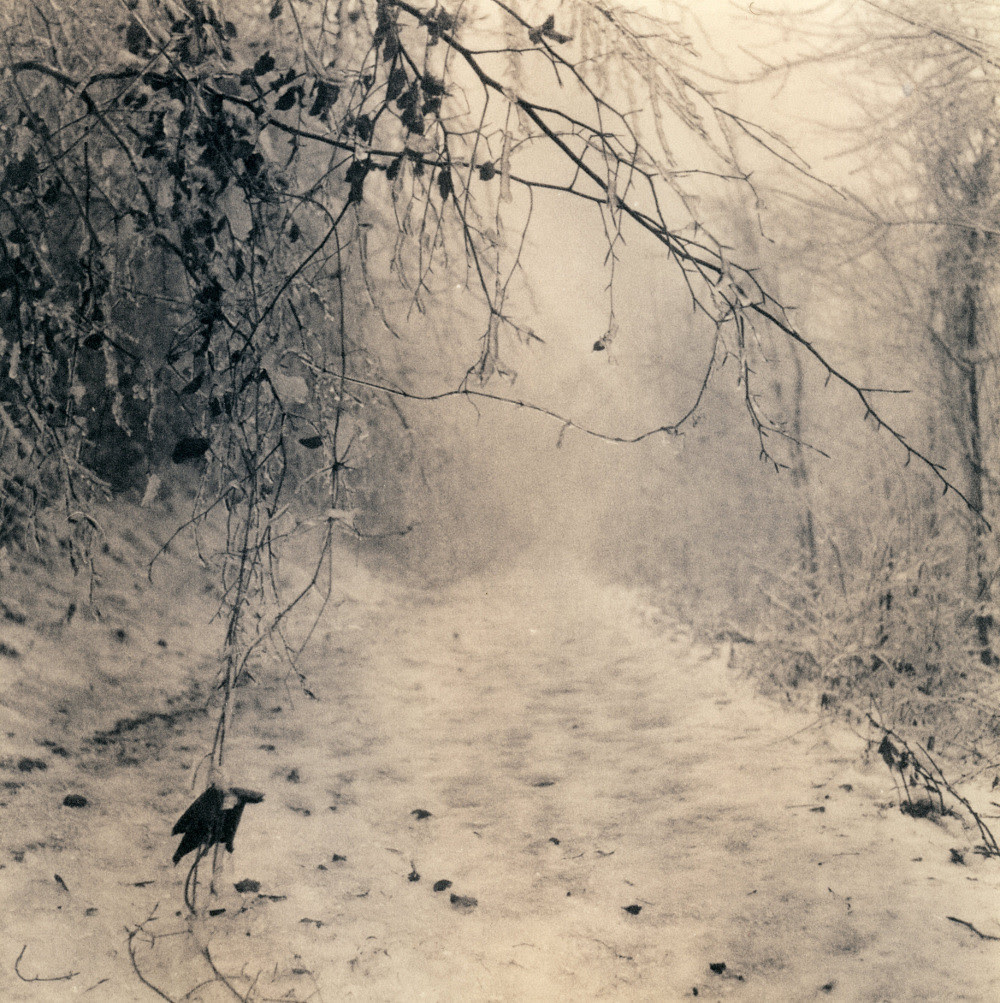.

Capybaras! (Wien): photo by Michael Hummel (Spitting Doc), 5 December 2013
On the wall facing my desk hangs a poster somebody gave me. The dog Snoopy is sitting at a typewriter, and in the cartoon you read the sentence, "It was a dark and stormy night. . . . ." Every time I sit down here I read, "it was a dark and stormy night . . ." and the impersonality of the incipit seems to open the passage from one world to the other, from the time and space of here and now to the time and space of the written word; I feel the thrill of a beginning that can be followed by multiple developments, inexhaustibly; I am convinced there is nothing better than a conventional opening, an attack from which you can expect everything and nothing; and I realize also that this mythomane dog will never succeed in adding to that first seven words another seven or another twelve without breaking the spell. The facility of the entrance into another world is an illusion: you start writing in a rush, anticipating the happiness of a future reading, and the void yawns on the white page.
Ever since I have had this poster before my eyes, I have no longer been able to end a page. I must take this damned Snoopy down from the wall as quickly as possible, but I can't bring myself to do it; that childish figure has become for me an emblem of my condition, a warning, a challenge.
Italo Calvino: from If on a winter's night a traveler, 1981, translated by William Weaver, 1981
Not long afterwards, there was once more great dearth throughout the land, and the children heard their mother saying at night to their father: "Everything is eaten again, we have one half loaf left, and that is the end. The children must go, we will take them farther into the wood, so that they will not find their way out again; there is no other means of saving ourselves!"
The man's heart was heavy, and he thought: "It would be better for you to share the last mouthful with your children." The woman, however, would listen to nothing that he had to say, but scolded and reproached him. He who says A must say B, likewise, and as he had yielded the first time, he had to do so a second time also.
The children, however, were still awake and had heard the conversation. When the old folks were asleep, Hansel again got up, and wanted to go out and pick up pebbles as he had done before, but the woman had locked the door, and Hansel could not get out.
Nevertheless he comforted his little sister, and said: "Do not cry, Gretel, go to sleep quietly, the good God will help us."
Early in the morning came the woman, and took the children out of their beds. Their piece of bread was given to them, but it was still smaller than the time before. On the way into the forest Hansel crumbled his in his pocket, and often stood still and threw a morsel on the ground. "Hansel, why do you stop and look round?" said the father, "go on." "I am looking back at my little pigeon which is sitting on the roof, and wants to say goodbye to me," answered Hansel. "Fool!" said the woman, "that is not your little pigeon, that is the morning sun that is shining on the chimney." Hansel, however little by little, threw all the crumbs on the path.
The woman led the children still deeper into the forest, where they had never in their lives been before...
The Brothers Grimm: from Hansel and Gretel, 1812, in Grimm's Household Tales, translated by Marian Edwardes after Edgar Taylor, 1912
For children are particularly fond of haunting any site where things are being visibly worked on. They are irresistibly drawn by the detritus generated by building, gardening, housework, tailoring or carpentry. In waste products they recognize the face that the world of things turns directly and solely to them. In using these things, they do not so much imitate the works of adults as bring together, in the artifact produced in play, materials of widely differing kinds in a new, intuitive relationship. Children thus produce their own small world of things within the greater one. The fairy tale is such a waste product -- perhaps the most powerful to be found in the spiritual life of humanity; a waste product that emerges from the growth and decay of the saga. Children are able to manipulate fairy stories with the same ease and lack of inhibition that they display in playing with pieces of cloth and building blocks. They build their world out of motifs from the fairy tale, combining its various elements.
Walter Benjamin: from "Old Forgotten Children's Books", 1924, translated by Rodney Livingstone in Selected Writings, Volume 1: 1913-1926, ed. Marcus Bullock and Michael W. Jennings, 1996

Kleine Winterreise #1 / Ennsbad: photo by Michael Hummel (Spitting Doc), 9 February 2013

Kleine Winterreise #2 / Ennstalbahn: photo by Michael Hummel (Spitting Doc), 9 February 2013

Gemeindebau / The Treasure of the Sierra Margareten (Wien): photo by Michael Hummel (Spitting Doc), 14 February 2013

Shortcut (Margareten): photo by Michael Hummel (Spitting Doc), 14 February 2013

Krah - Blues (Wien): photo by Michael Hummel (Spitting Doc), 20 January 2013

Drifting into Archetypes (Canton of Zug): photo by Michael Hummel (Spitting Doc), 6 March 2013

Rustensteg #1 /The Possibility of an Oasis (Wien): photo by Michael Hummel (Spitting Doc), 28 January 2013

Rustensteg #2 / If on a Winter's Morning a Traveler...: photo by Michael Hummel (Spitting Doc), 29 January 2013

Staying Inside Is an Option (Bregenzerwald): photo by Michael Hummel (Spitting Doc), 6 December 2012

Velvet Periphery (Kahlenberg): photo by Michael Hummel (Spitting Doc), 25 December 2013

Too much Grimm (Kahlenberg): photo by Michael Hummel (Spitting Doc), 25 December 2012

Winterpfad (Kahlenberg): photo by Michael Hummel (Spitting Doc), 25 December 2012

B and W Shift (Kahlenberg): photo by Michael Hummel (Spitting Doc), 25 December 2012

Lichtfänge / Melancolia 2 (Lanne-Viru, Altje, Estonia): photo by Michael Hummel (Spitting Doc), February 2011

Going D / Vergebliche Suche nach der Farbe des Imperiums (Wien): photo by Michael Hummel (Spitting Doc), 21 January 2013

Burghof 7:55 / Almost Street (Wien): photo by Michael Hummel (Spitting Doc), 21 January 2013
Haunting post. I love Calvino, and it's an interesting mix, with Grimm.
ReplyDeleteReminds me of the news this AM--there are more hungry and homeless, and the shelters are full and are turning mothers and children away
and it's 15 degrees outside . . .
When I was a young child,just beyond kindergarten, I was led to believe that each of the dead carried an apple in the pocket of a greatcoat.
ReplyDeleteRed Shuttleworth
Yesterday, needing some clarification, el viejo asked her, “Are these depressing times, or is it just me?” She assured him that these are indeed depressing times. Poco confort, he thinks, but keeps on doing the existential mambo, further and further into the dark woods.
ReplyDelete"But not long afterwards, food was short again, and many people went hungry. One night the children heard the woman say to their father 'It's no good. We've only got half a loaf left, and then we'll all starve. We must get rid of the children, and do it properly this time. They must have had some trick before, but if we take them deep enough into the woods they'll never find their way out. . ."
ReplyDelete-- from Philip Pullman's Fairy Tales from the Brothers Grimm, translated from the seventh edition of Kinder- und Hausmarchen (1857), which I've been reading and rereading to Johnny this past year. . .
meanwhile, as Nin reminds us "the shelters are full and are turning mothers and children away
and it's 15 degrees outside . . . "
Everyone (authors, commenters, compiler, photographers) have said everything, but I'm stuck, as I always am, on the capybaras. In Vienna no less. Curtis
ReplyDeleteThanks, all!
ReplyDeleteCurtis, I've been stuck on those Capybaras for eight days. So what gives? Are we seeing through glass? Water? Remembering that Capybaras can't live without the company of their kind -- check -- nor without water -- check... I guess. But snow? This is a native of South America. This wonderful 150 pound rodent voyeur!
About Grimm, it will be noted that the photographer has given away this preoccupation in titling the sixth-from-bottom shot "Too Much Grimm". That's what brought Hansel and Gretel to this grimm little party.
Finally, Hansel's scatttering of bits upon the path put me in mind of this bit from "Old Forgotten Children's Books":
"For children are particularly fond of haunting any site where things are being visibly worked on. They are irresistibly drawn by the detritus generated by building, gardening, housework, tailoring, or carpentry. In waste products they recognize the face that the world of things turns directly and solely to them. In using these things, they do not so much imitate the works of adults as bring together, in the artifact produced in play, materials of widely differing kinds in a new, intuitive relationship. Children thus produce their own small world of things within the greater one. The fairy tale is such a waste product -- perhaps the most powerful to be found in the spiritual life of humanity; a waste product that emerges from the growth and decay of the saga. Children are able to manipulate fairy stories with the same ease and lack of inhibition that they display in playing with pieces of cloth and building blocks. They build their world out of motifs from the fairy tale, combining its various elements."
Walter Benjamin: from "Old Forgotten Children's Books", 1924, translated by Rodney Livingstone in Selected Writings, Volume 1: 1913-1926, ed. Marcus Bullock and Michael W. Jennings, 1996
Capybaras in the wild -- and in the wet
ReplyDeleteDobby the domesticated Capybara explains that he doesn't care much for snow
Garibaldi Rous the domesticated Capybara explains that he definitely has a soft spot for corn nuts
Great post, Tom.
ReplyDeleteThe Benjamin quote takes the thoughts further into the woods.
Thanks very much, Duncan. You've given me confidence to restore the Benjamin bit to its original position in the post.
ReplyDeleteOnly took a mere hour and a half with the numb digits turning blue in the half-gloves to hunt-and-peck it back into the thing but what ho, undue diligence & all that.
(There had been some debate here as to whether anyone would, um, "get it".)